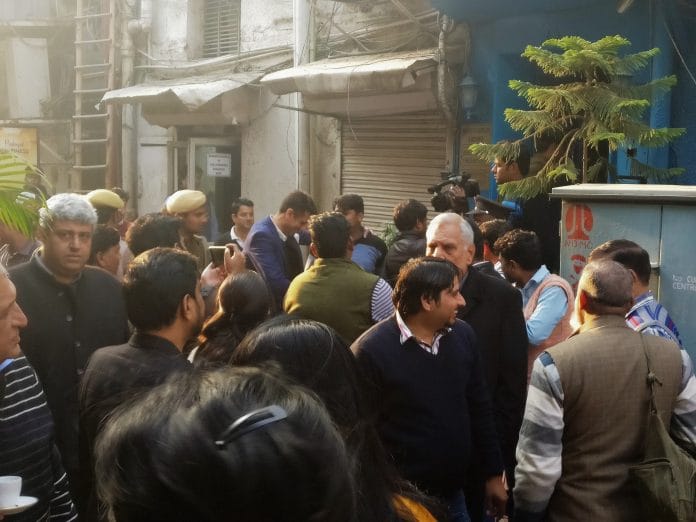The drive was undertaken by the municipal corporations of the national capital in December last year on the directions of an SC-appointed panel.
New Delhi: Delhi chief minister Arvind Kejriwal has called an all-party meet Tuesday to find a solution to the problems being faced by traders amid the ongoing drive to seal commercial establishments functioning from residential premises.
Kejriwal had earlier written to the Delhi BJP and Congress chiefs, Manoj Tiwari and Ajay Maken, respectively, urging them to rise above politics and come together in the interest of local traders.
The meeting will coincide with a city-wide bandh called by the Confederation of All India Traders (CAIT) to protest against the drive that has seen around 2,500 such commercial establishments get sealed for not paying conversion charges.
The sealing drive was undertaken by the municipal corporations of the national capital in December last year on the directions of the Supreme Court-appointed Bhure Lal committee.
Where it began
The Supreme Court had directed the committee to crack down on illegal shops in residential areas, among other violations, after being presented with a report that claimed disregard for building byelaws was turning Delhi into a concrete jungle that could collapse with one big earthquake.
Begun with Defence Colony, the drive has affected traders in several shopping hubs like Khan Market, Meherchand Market, Sarojini Nagar and Geeta Colony.
While traders received a month’s respite in February on account of a Supreme Court stay, the sealing drive began again in March after the court restrained the Centre, the Delhi government and the Delhi Development Authority (DDA) from amending the ‘Master Plan for Delhi 2021’ to regularise such establishments. The amendments would have allowed a mixed land-use policy, under which commercial and residential establishments could function in a simultaneous but restricted manner.
On March 8, Delhi police courted criticism as protesting traders of Lajpat Nagar’s Amar Colony area were allegedly beaten up as they tried to halt the drive.
What the residents want
Resident welfare associations (RWAs) across Delhi say the operation of commercial enterprises from residential premises burdened infrastructure and caused pollution. They reportedly also made a representation presenting their case to the Bhure Lal committee.
It goes back a decade
However, this is not the first time such a large-scale sealing drive has hit the city’s traders.
In 2006, following a Delhi high court directive, the erstwhile Municipal Corporation of Delhi (MCD), which has since been trifurcated, posted on its website a list of 18,000 constructions identified for the violation of building bye-laws between 2001 and 2005.
The civic agency then began to crack down on these establishments that were running in residential areas around Delhi. The ensuing protests led to the death of four people.
This sealing drive continued until early 2007, when the Supreme Court suspended the drive. Shops began to be unsealed by the MCD after the central government introduced a bill to officially suspend the drive.
It has been back and forth since then, with the government, the RWAs and traders associations filing several petitions and affidavits to either stay the sealing or resume it.






